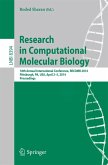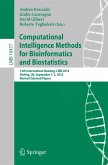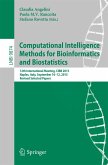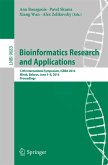Approaches in Integrative Bioinformatics provides a basic introduction to biological information systems, as well as guidance for the computational analysis of systems biology. This book also covers a range of issues and methods that reveal the multitude of omics data integration types and the relevance that integrative bioinformatics has today. Topics include biological data integration and manipulation, modeling and simulation of metabolic networks, transcriptomics and phenomics, and virtual cell approaches, as well as a number of applications of network biology. It helps to illustrate the value of integrative bioinformatics approaches to the life sciences. This book is intended for researchers and graduate students in the field of Bioinformatics. Professor Ming Chen is the Director of the Bioinformatics Laboratory at the College of Life Sciences, Zhejiang University, Hangzhou, China. Professor Ralf Hofestädt is the Chair of the Department of Bioinformatics and Medical Informatics, Bielefeld University, Germany.
Dieser Download kann aus rechtlichen Gründen nur mit Rechnungsadresse in A, B, BG, CY, CZ, D, DK, EW, E, FIN, F, GR, HR, H, IRL, I, LT, L, LR, M, NL, PL, P, R, S, SLO, SK ausgeliefert werden.









